Even though many people consider travel to be a “getaway” from routine and a person's normal life, the truth is that traveling isn't always relaxing. In fact, travel – and especially international travel – can sometimes be downright stressful.
I actually know plenty of people who have never traveled abroad simply because they don't know where to start.
This post isn't going to be about planning an international trip – I've got another post to help you with that! Rather, this post is going to be about all the things you need to do before actually leaving on said international trip.

Pre-Trip Checklist for International Travel
Regardless of how far you're traveling, here are all the things you'll need to do before going on an international trip:
1. Check your passport
First things first: double check your passport before you book an international trip! Make sure it's not expired, AND make sure it's valid for at least 6 months after the end of your planned trip. Many countries will not let you in if your passport expires within 6 months.
You also want to make sure your passport isn't full (two fully blank pages are required for entry to some countries).
If you need to renew your passport, be sure to give yourself plenty of time.
2. Know whether you need a visa
If you're an American traveler like me, you're lucky. We are able to visit many countries around the world without needing to apply for a visa beforehand. Some countries will require nothing more than a passport stamp, while others will enable you to get your visa when you arrive in the country.
But don't just assume that because you carry a US (or Canadian or British or Australian) passport that you can travel visa-free to any country.
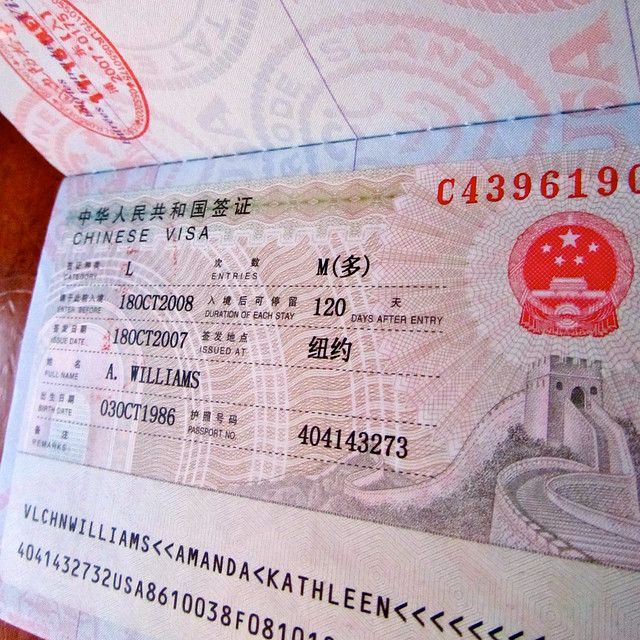
You may still need to go through the visa application process for certain countries (like China), or apply for a visa-on-arrival online before you travel to countries like Vietnam and Tanzania. Going to Australia? Then you'll need to get an Electronic Travel Authority online before you leave home.
And note that, beginning sometime in 2024, US travelers will need to register with the European Travel Information and Authorization System (ETIAS) for any trips to the Schengen Zone.
Be sure to check visa requirements for the country(ies) you'll be traveling to as soon as you book your trip – don't assume anything, and don't leave this go until the last minute. I usually use travel.state.gov to check visa requirements for American travelers.
3. Get vaccinated if you need to
When I'm planning a trip to anywhere that's not in the US, Canada, or Western Europe, I double-check with the CDC website to see whether or not I need any vaccines in order to travel. (And before you tell me not to “get political,” know that countries have had vaccination entry requirements long before COVID-19 existed.)
You can use the CDC site to learn about recommended and required vaccinations for any country in the world. In general, you'll want to have all your routine vaccines (like MMR, tetanus, etc.) up to date. If you're traveling to less-developed parts of the world, you also may want to consider Hepatitis A and Typhoid vaccines, since both can be transmitted through contaminated water.
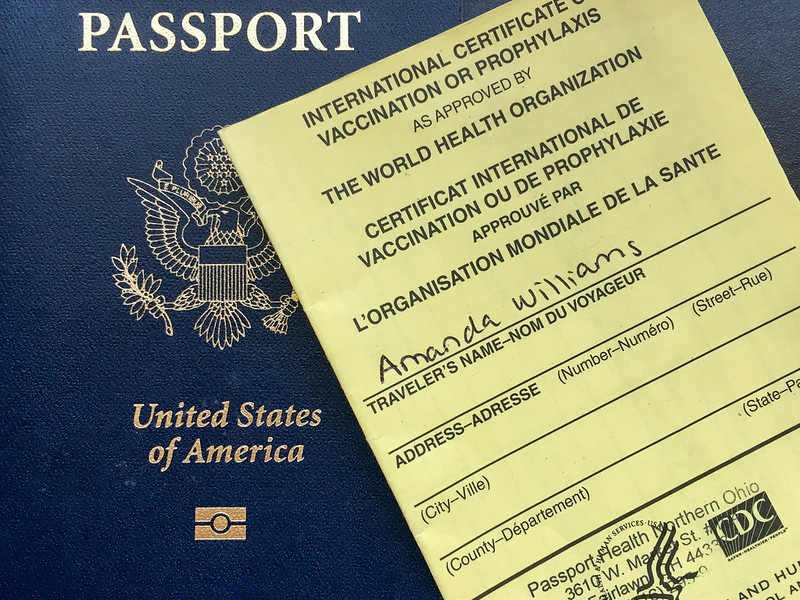
Malaria is also something you'll want to read up on if you're visiting any tropical areas, or certain parts of Africa and southern Asia. Some places have a higher malaria risk than others. If you're traveling to a high-risk area, you'll probably want to visit a doctor to get an anti-malarial prescribed.
RELATED: Travel in the Time of Zika: How to Avoid Mosquitos on the Road
The only vaccine that is frequently required around the world is the one for yellow fever. Some countries outside of yellow fever zones still require you to show proof of vaccination if you're traveling from a country where the mosquito-borne disease is prevalent. The yellow fever vaccine isn't cheap, but it's guaranteed to be cheaper than being turned away at a border if you need the vaccine and don't have it.
4. Purchase travel insurance
It's not nice to think about, but getting injured/sick is a possibility whenever you travel. Plenty of other not-so-nice things can happen to you while you're abroad, too, like having an airline lose your luggage, or getting pickpocketed on the street.
For this reason, having travel insurance is vital.

When it comes to getting sick on the road, your current health insurance provider might already cover you overseas – you'll just need to call and check. If this is the case, you still might want to invest in a basic insurance plan that will cover you in the event of a canceled trip or other non-health-related misfortune on the road.
If your current insurance doesn't cover you abroad, be sure to buy a full-coverage travel insurance plan (and make SURE it includes medical evacuation!). I've actually known several people who have needed hospital stays or to be evacuated home because of illness/injury partway through a trip.
5. Call your bank/credit cards
A couple of days before you leave, be sure to alert your bank and credit card companies that you'll be out of the country and will be potentially using your card(s) abroad. This helps lessen the likelihood that your card will be declined or shut down for suspicious activity when you're trying to use it overseas.
Most credit cards will have a customer service number on the back you can call to do this, while many even let you enter travel notifications online these days.
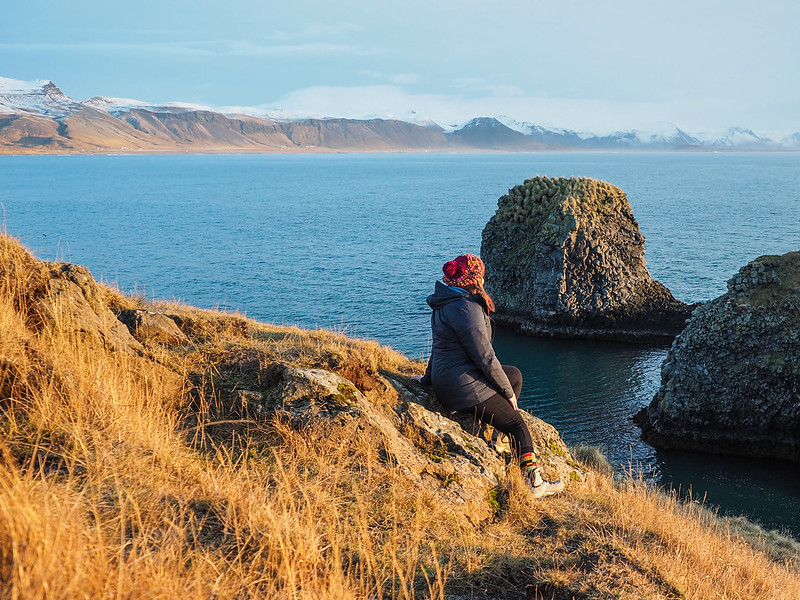
6. Know how you'll get local currency
Speaking of bank cards, have a plan for how you'll get some local currency.
Most countries accept credit cards these days (with Visa and MasterCard being the most widely-accepted), and in some European countries especially, things have largely gone cash-less.
But if you still want to have local currency on you, or if you're traveling somewhere that still primarily uses cash, there are a few ways to go about getting currency for your trip:
- You can order currency from your bank a few weeks before you leave.
- You can exchange money when you arrive (though note that airport exchange counters offer the most awful exchange rates – exchange at a bank if you can!).
- You can use your debit card at a local ATM – this is what I prefer to do!
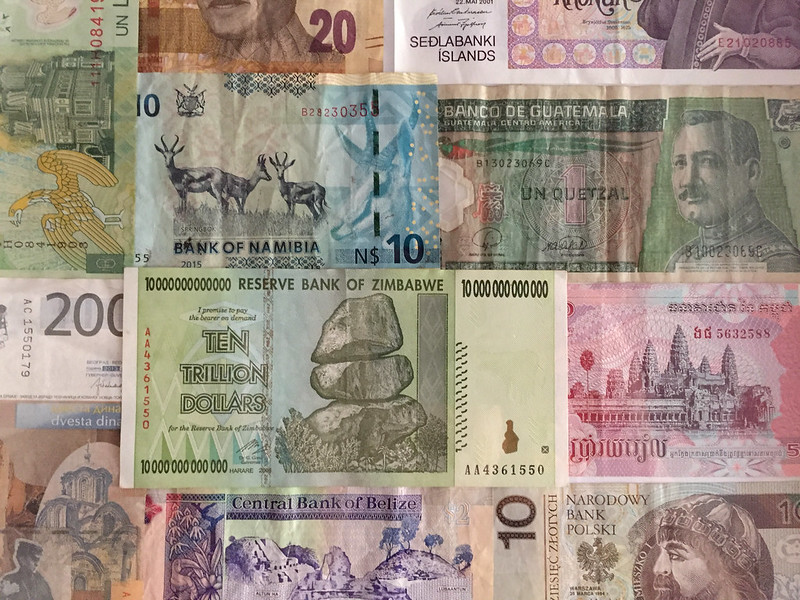
(And if you're traveling to a mostly cash-free country? Then be sure to have at least 2 cards on you, and it consider having Apple Pay/Google Pay set up on your phone.)
7. Have a travel-friendly credit card
If you don't already have a credit card with no foreign transaction fees, consider getting one if your credit is good and you don't have a lot of debt (responsible credit usage, people!). Foreign transaction fees are annoying and can really start to add up – so make sure to have a way around them if you don't plan to pay for everything in cash.
Need suggestions on a good travel-friendly card? This post from The Points Guy offers a lot of great suggestions. You may as well choose a card that will earn you travel rewards while you're at it!
8. Research transport for your arrival
If you're booking a tour or organizing your trip through a travel agent, transport from the airport to your first hotel may already be arranged for you. But if you're planning your trip independently, it's a good idea to read up on your transport options before you leave home.
How much would a taxi cost? Does Uber or Lyft or another rideshare program exist? Does your hotel have a shuttle? Is public transport available and easy to navigate?
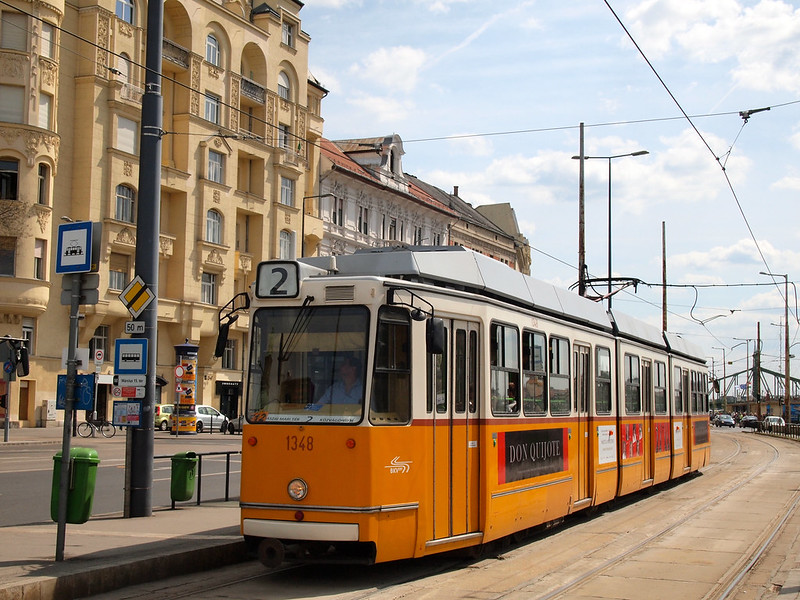
Finding the answers to these questions before you leave will cut down on the stress of arriving in a strange airport after a (likely) long flight. I know the last thing I want to do after a long overnight flight is try to figure out how to leave the airport.
9. Pack appropriately
Make sure you know what the weather will be like wherever you're going. Remember that seasons are different depending where in the world you are, and that “summer” and “winter” can vary from continent to continent! Know what season you'll be packing for well in advance, and then keep an eye on the weather forecast for exactly where you'll be in the week leading up to your trip.
Also make note of whether there are any cultural norms to take into account. For example, many Middle-Eastern and Asian countries are much more conservative when it comes to dress, meaning you may need to avoid packing things like tank tops and shorts.
Check out my packing lists page for country-specific packing lists.

You should also check what type of power outlets you'll encounter on your trip. Voltage doesn't matter so much any longer (most electronics and chargers can operate internationally with no problem), but you will likely need an adapter for wall plugs. I like this multi-country adapter from Skross, which will work in just about any country.
Lastly, you'll want to ensure that everything you're packing is going to stay safe. I love Pacsafe's line of theft-proof bags, and highly recommend grabbing a RFID-blocking, slash-proof backpack or handbag. In certain parts of the world, a portable safe also isn't a bad idea!
RELATED: How to Keep Your Money and Valuables Safe on Your Travels
10. Make copies of important documents
Passport, tickets, reservation confirmations… it's a good idea to have hard copies of things, and to also have photocopies of important documents like your passport – just in case! Keep these copies somewhere safe, ideally separate from the originals.
(I also have a digital copy of my passport – just a photo of the main page – saved on both my phone and laptop.)
11. Make sure someone knows your plans
And speaking of those important documents, be sure to leave a copy of your itinerary with someone at home. This is especially important if you're traveling solo, to ensure that someone knows where you should be and when.
Thankfully, it's easier than ever to stay in touch on the road. Wifi is widely available in most parts of the world, and international phone/texting plans and apps like WhatsApp make it easy to check in with friends and family back home. When I travel alone, I make sure to check in with someone at home every few days.
If you want to take things a step further, you can also register your trip (if you're American) with the nearest U.S. Embassy or Consulate by enrolling in the Smart Traveler Enrollment Program (STEP). STEP is free, and essentially makes it easier for your family or an Embassy to contact you in the event of an emergency.
12. Do a little homework
Lastly, do a little homework about your destination before you leave home. Read up not only on things to do and foods to eat, but also familiarize yourself with common scams to watch out for, how public transportation works, and if there are any areas you should avoid.
Learning a few phrases in the local language (especially things like “hello” and “thank you”) will also go a long way. Lonely Planet has quite a few useful phrasebooks that you might want to check out.
READ NEXT: How to Plan an Awesome Trip in 16 Easy Steps
And then, once your checklist is complete, be sure to relax and enjoy yourself!
Are there any other things on your to-do list before leaving on an international trip?

Amanda Williams is the award-winning blogger behind A Dangerous Business Travel Blog. She has traveled to more than 60 countries on 6 continents from her home base in Ohio, specializing in experiential and thoughtful travel through the US, Europe, and rest of the world. Amanda only shares tips based on her personal experiences and places she's actually traveled!











Hi Amanda! Is that tram photo in Nice?
Nope, the tram photo is actually from Budapest!
Clearly I need to travel MORE! 😉
Really great tips! Thanks for the reminder to enroll in the STEP program.
It’s never a bad idea, especially if it will give you and your family members a little peace of mind.
Such a great list Amanda! Although I do most of these things, travel insurance is something that I don’t take very seriously, which I think should change now! Also, packing remains my biggest challenge as I tend to pack more than necessary. I have improved over time, but a long way to go! 🙂
A lot of people overlook travel insurance, but I’ve heard too many horror stories of broken bones and hospital stays – I’d rather have it and not need it than need it and not have it!
Great tips Amanda!
I’d also recommend that you get a neighbour to collect your post, water your plants, and open and close your shutters / blinds. And depending on how long you’re travelling for, to air the rooms!
We have a special alarm system that does a lot of things autoatically, but nothing beats an actual person. A blocked mailbox says volumes. Any you really wouldn’t want to come home to dead plants and stuffy rooms! Oh, and ask a relative or close friend to buy some essentials before you arrive, such as fresh milk, juice, butter, and a loaf of bread, as you’re usually starving when you get back from your holiday lol!
Also great tips! If both Elliot and I travel together, we always have someone come over once or twice a day to take care of our cat – which is another thing to plan for before you leave home!
Very useful list. I add this one to my favorites, each and every title should be carefully checked before setting out.
Great list! So helpful. Always need to remind myself to purchase travel insurance. 🙂
Yes! I don’t like to travel without it after hearing some horror stories of accidents on the road!
To add, call your bank about your debit/ATM card to let them know you’ll be using it overseas.
If you’re a Bank of America customer, you can use ATMs without a fee at specific banks in select European countries.
Calling your bank is already on the list! (But good to know about BoA not charging ATM fees in some countries – that’s handy!)
Great tips! I haven’t traveled anywhere that I’ve needed a visa yet, but I always double check before planning a trip just to be safe!
Always a good idea – it only takes a few minutes to check online, but it can save you hours of headaches!
Great tips! I often forget about telling my bank too! Whoops.
It’s an easy one to forget, but it’s really important! I once forgot to call Paypal to let them know I’d be using my debit card in Hungary, and the ATM would not accept my card. Add to this the fact that I arrived on a Saturday and Paypal’s customer service is only open Monday-Friday, and I found myself in a bit of a pickle! I ended up having to exchange $60 USD from my “emergency money” stash in order to tide me over. (Having a stash of emergency cash from your home country is another thing I recommend!)
Great information! It’s pretty easy to get everything done that is needed for an international trip, but there are so many little things that it’s also easy to forget a couple steps sometimes! In fact I need to do a couple of these things myself 😛
I’m constantly forgetting to call my credit cards until the day I leave! I usually end up making calls at the airport. 😉
Hi Amanda! Great list! Do you have any recommendations for credit cards that don’t have a foreign transaction fee? I’ve been using PayPal, which only has 1%, instead of the usual 3%, but I haven’t heard of any others.
Hey Tobi! There are lots of cards out there! Most travel rewards cards have no foreign transaction fee these days. I have the United MileagePlus card from Chase, and the Citi AAdvantage card – neither one has foreign transaction fees. US Bank even offers a travel rewards card with no foreign transaction fees. And here’s a whole other list of travel-friendly cards: https://thepointsguy.com/guide/top-cards-with-no-foreign-transaction-fees/
Thanks so much! This is really helpful!
Cracking tips! I’m still in the mapping out stage of Project Latino but I’ll def be referring back to this later!
Just on the visa situation, my American friend made a howler and rocked up to Seoul airport to fly to Shanghai, believing he could use the 72-hour transit visa for a return trip.
I wasn’t harsh enough to tell him the clue was in the word ‘transit’ but it seems somebody gave him dud advice on the regulations! People need to make sure the source the current information at reliable sources or risk the anguish of having the door slammed in their faces!
Oh geez! Yes, it’s definitely important to get info about visas from a reliable, official source!
Excellent tips Amanda! As an airline pilot, I´m often on the road and often find myself having to think about packing, visas and local currency. I´ve also written a list of tips for staying healthy (and sane!) on long-haul flights. Travelling is amazing, but is sometimes hard work and we need to make sure we look after ourselves – and our bank balance too.
So true! I also always pack a little first aid kit with those “just in case” things like band aids, alcohol swabs, pain killers, etc. Because you just never know!
A great list Amanda 😀
Can I just add one more tip? It’s always good to research if your destination will have wifi or some sort of internet connectivity because let’s face it internet is important in this day an age. If you are not sure internet will be available then planing on getting a wifi dongle might be a good idea.
If you use your phone or tablet as the main means of accessing the net be sure to ask your hotel if they have wifi or just provide wired connection. If wired connection is the case, a travel wifi router will get the internet from the wired connection to your device 🙂
Definitely worth looking into when you’re booking your accommodation! Luckily, wifi is a lot more common these days than it used to be.
great list. i might add my two cents having just returned from europe. our bank charges an outrageous amount to exchange currency and recommended we do so at the currency exchange at the mall (which is what we did). we had a little starter pack of euros and then twice used the atm’s for more when needed. we were arriving after a long overnight flight and were not sure we could quickly find euros to pay our driver who needed cash only. so really, ask lots of questions at the bank about the exchange rate and fees. the second thing i would highly recommend is to have change in your pocket (local currency, of course) to use if you need to use the bathroom. we had to pay everywhere in italy, france and greece. if you did not have change, sometimes the attendant had some, sometimes not. understand where you will be needing to find your bio breaks! research your transportation options in the places you will travel. most places are so easy to get around with public transport. anyway, this is a great list and i would agree with all of it. only our second trip overseas but we now feel like experts. i cannot stress the importance of using the STEP program you mentioned. they kept us updated on the current threat levels in the countries we were visiting which gave us and our families peace of mind.
Your tips are also great! (And YES to the having coins for toilets in Europe! Many countries charge a small fee to use public restrooms.)